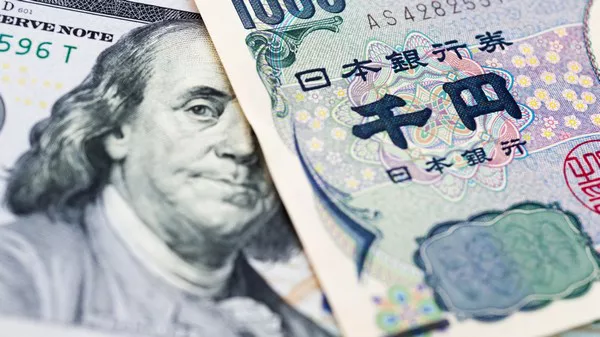In the intricate realm of global finance, the Japanese yen’s fluctuations hold significant implications for both the domestic economy and the broader international market. The depreciation of the Japanese yen is a phenomenon that demands attention, unraveling a tapestry woven with economic intricacies. This article delves into the multifaceted aspects of why the Japanese yen depreciates, the responses it elicits, and the inspirations that shape its trajectory.
Reasons for the Depreciation of the Japanese Yen
1. Economic Policies and Monetary Stimulus
Japan has a history of implementing monetary policies aimed at stimulating economic growth. The Bank of Japan (BOJ) often employs measures such as low-interest rates and quantitative easing to boost economic activity. While these policies aim to revitalize the economy, they can inadvertently lead to a depreciation of the yen. Investors may seek higher returns in other currencies, causing a shift away from the yen and contributing to its decline.
2. Trade Imbalances
Japan, as a major exporting nation, relies heavily on its trade surplus. However, persistent trade imbalances, where exports exceed imports, can impact the yen’s value. When a country consistently exports more than it imports, there is a surplus of its currency in foreign markets. This surplus can lead to a decline in the currency’s value, as increased supply diminishes its relative worth.
3. Global Economic Conditions
The Japanese yen’s value is intricately tied to global economic conditions. During times of economic uncertainty or downturns in major economies, investors often seek safe-haven currencies. While the yen is traditionally considered a safe-haven, its value can still be influenced by broader global economic trends. Economic downturns can lead to a flight to safety, bolstering the yen, but conversely, periods of global stability may see a depreciation as investors pursue higher yields elsewhere.
4. Interest Rate Differentials
Interest rates play a pivotal role in currency valuation. If the interest rates in Japan are lower than those in other countries, investors may move their capital to seek higher returns. This shift in capital flow can contribute to the depreciation of the yen. Central banks’ decisions regarding interest rates, both in Japan and globally, have a profound impact on the yen’s value.
Responses to Yen Depreciation
1. Export Competitiveness Boost
One of the silver linings of yen depreciation is the potential boost it provides to Japan’s export competitiveness. A weaker yen makes Japanese exports more affordable for foreign buyers, stimulating demand for Japanese goods and services. Industries such as automotive, electronics, and machinery often benefit from a more competitive exchange rate.
2. Inflationary Pressures
Yen depreciation can also contribute to inflationary pressures within Japan. As the yen weakens, the cost of imported goods and raw materials rises, influencing overall price levels. While moderate inflation can be conducive to economic growth, excessive inflationary pressures may necessitate careful monetary policy adjustments.
3. Impact on Consumers and Businesses
For Japanese consumers, a weaker yen can mean higher prices for imported goods and overseas travel. However, for businesses heavily reliant on exports, particularly large corporations with a global presence, a depreciated yen can be a strategic advantage. It allows them to maintain competitiveness in the global market and can positively impact corporate earnings.
Inspirations Shaping the Yen’s Trajectory
1. Global Market Sentiment
Market sentiment, often driven by geopolitical events, economic indicators, or unexpected crises, can significantly influence the yen’s trajectory. The yen’s status as a safe-haven currency makes it particularly sensitive to global uncertainties. Factors such as political tensions, trade disputes, or health crises can inspire a flight to safety, strengthening the yen.
2. Central Bank Communications
The communications and policies of the Bank of Japan are crucial determinants of the yen’s value. Statements regarding monetary policy, interest rates, and economic outlook can sway investor confidence. Clear and transparent communication from the central bank provides insights into its intentions, influencing market expectations and impacting the yen’s valuation.
3. Domestic Economic Reforms
Japan’s efforts to address domestic economic challenges and implement structural reforms play a pivotal role in shaping the yen’s trajectory. Initiatives aimed at boosting productivity, addressing demographic challenges, and fostering innovation can impact investor confidence in the Japanese economy, subsequently influencing the yen’s value.
Conclusion
The depreciation of the Japanese yen is a nuanced phenomenon shaped by a myriad of economic, geopolitical, and market-driven factors. Understanding the reasons behind yen depreciation, the responses it triggers, and the inspirations that guide its trajectory is essential for investors, policymakers, and anyone keen on unraveling the complexities of global finance.
As Japan continues to navigate the evolving landscape of the global economy, the yen’s value will remain subject to a dynamic interplay of domestic and international forces. Monitoring economic indicators, staying attuned to central bank communications, and recognizing the interconnectedness of global markets are crucial elements in deciphering the ever-changing story of the Japanese yen.


